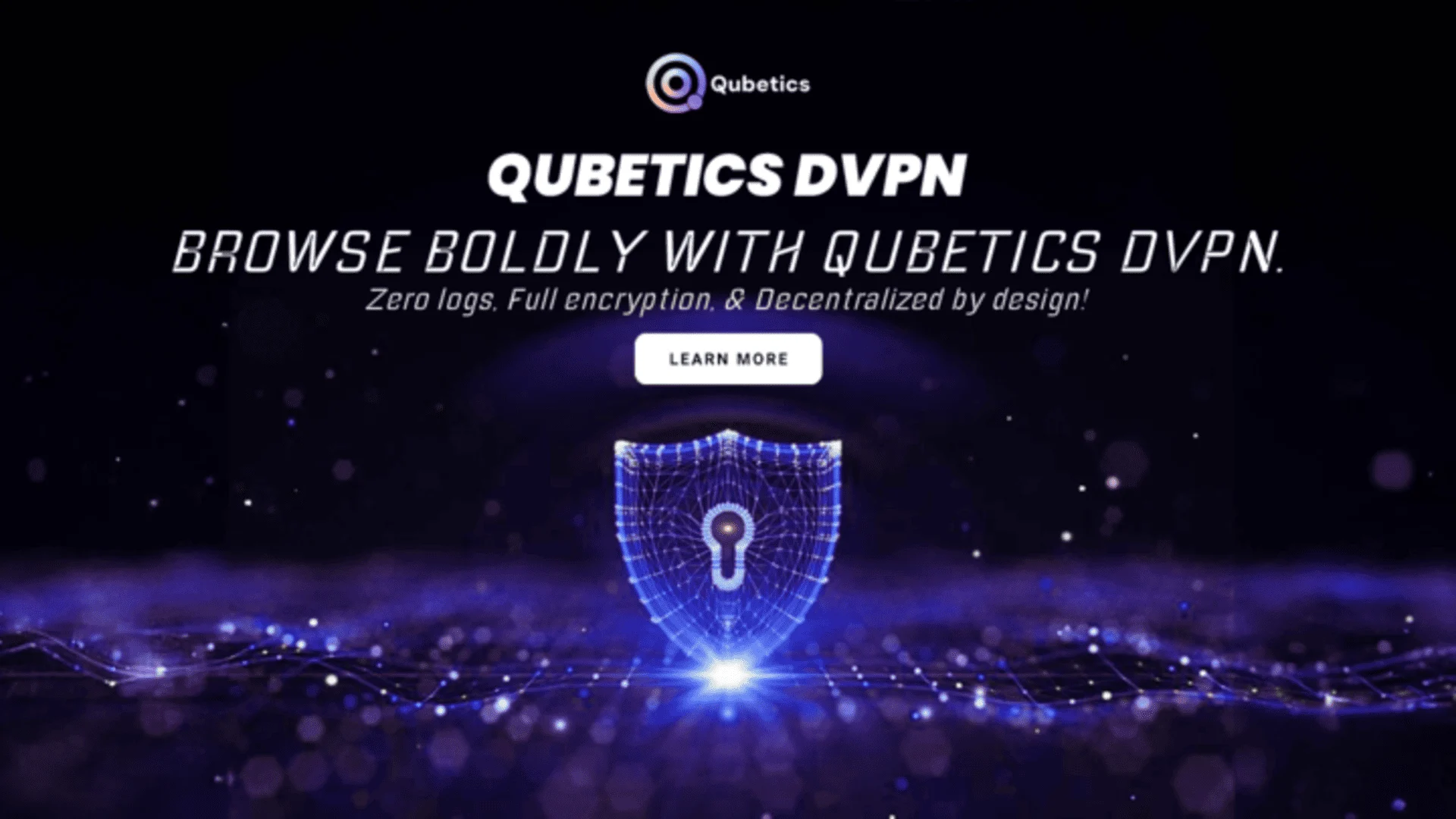The Best Crypto Under a Penny Right Now? Qubetics Sets the Bar Above Cronos and Aptos
0
0

In a crypto space surrounded with short-term hype and speculative detours, only a select group of projects have earned reputations for delivering consistent value across cycles. Cronos, with its deep exchange integration, and Aptos, with its high-speed Layer-1 ambitions, have both proven resilient in the face of volatility. Each has cultivated a distinct space—Cronos as a gateway into DeFi through a centralized exchange ecosystem, and Aptos as a high-performance smart contract platform targeting mainstream scalability. These projects are no strangers to crypto conversations. They’ve steadily built trust among backers who prioritise infrastructure and interoperability over fleeting trends. But there’s another name gaining traction beneath the one-cent threshold—Qubetics ($TICS).
Unlike its predecessors that initially built recognition on institutional support or exchange affiliation, Qubetics is charting its own route through application-first utility. It’s not only presenting a real alternative in how blockchain supports privacy, payments, and asset tokenization, but it’s also bridging gaps other networks often leave wide open. As the appetite grows for tangible, utility-driven assets under a penny, Qubetics is emerging as a protocol with infrastructure deep enough to compete—and flexible enough to redefine expectations.
Qubetics ($TICS): Practical Infrastructure and Real Utility for the Best Crypto Under a Penny
Qubetics is an infrastructure blueprint. Equipped with a Decentralised VPN (dVPN) protocol. This isn’t the typical privacy-focused tech most coins offer in theory but rarely execute. Qubetics is building a decentralised, secure routing framework that’s built for real-world deployment.
Qubetics is redefining digital privacy through its Decentralized VPN, a blockchain-integrated solution that eliminates the need for centralised servers and third-party control. Unlike traditional VPNs that route traffic through corporate infrastructures—often susceptible to data logging, throttling, or surveillance—Qubetics’ Decentralized VPN runs on a distributed node network powered by smart contracts.

This structure enables users across industries to securely access restricted content, shield sensitive data, and bypass geopolitical censorship without compromising on speed or transparency. For example, a freelance consultant operating in restrictive regions can maintain cross-border client communications without IP leaks, while a compliance-heavy business can enforce encrypted access policies for remote teams.
Additionally, financial analysts using blockchain dashboards or DeFi tools can operate with reduced exposure to malicious intercepts. What makes this feature especially compelling is its native integration into the Qubetics ecosystem—accessible through its multi-chain wallet and supported directly by the $TICS token economy. It’s not just another security layer—it’s a complete privacy infrastructure embedded into a blockchain protocol that’s being recognised as one of the best crypto under a penny for real-world utility.
A content creator working across borders can stream, share, and monetise without relying on centralised VPN services. Professionals managing sensitive legal or medical data can run operations over a secure, anonymous protocol that keeps both compliance and user protection intact. Even gig workers in countries with regulatory firewalls can use the dVPN to access open networks and financial systems without being locked out.
This type of infrastructure is what sets Qubetics apart in the race for the best crypto under a penny. It’s about more than trading. It’s about enabling people and companies to operate securely, affordably, and without middlemen.
Qubetics is now in its 37th stage of the crypto presale, with over 515 million $TICS already sold to 27,900+ holders. The total amount raised has surpassed $18 million, reflecting real interest from a decentralised community. The current price per token sits at $0.3370. Backers entering at this stage are looking at a listing price of $0.40, which offers a 20% ROI. But that’s just the starting line. Analysts are forecasting major ROI milestones. A $100,000 entry at this crypto presale stage could scale significantly, should Qubetics hit its post-mainnet projections. That kind of upside is rare, even among tokens in the best crypto under a penny class.
Qubetics brings together privacy, decentralization, and real-world adoption in a way few Layer-1s under a penny can claim. It’s this fusion of robust infrastructure and strong presale momentum that makes it a standout in the hunt for the best crypto under a penny.
Cronos ($CRO): DeFi-Heavyweight Backed by Exchange Power
Cronos has always stood out due to its backing by Crypto.com. As the native token of the exchange’s ecosystem, $CRO provides liquidity, staking, and utility across Crypto.com’s offerings. That kind of centralised support gives Cronos a level of stability not often seen in projects of its price tier.
Cronos has focused heavily on DeFi compatibility. It supports dApps and promotes staking and yield farming protocols. While not revolutionary in terms of tech, it’s consistent—and that’s kept it relevant, especially for users already tied into the Crypto.com environment. In recent months, however, Cronos has faced some heat over reduced platform activity and less developer engagement. Its growth has stabilised, and while the token hasn’t shown massive jumps, it remains a favourite for long-term crypto holders looking for exchange utility.
Cronos has proven staying power, backed by one of the biggest centralised exchanges globally. It remains among the best crypto under a penny for those who want liquidity, access, and DeFi entry points with institutional reliability behind them.
Aptos ($APT): High-Speed, High-Scalability with Layer-1 Potential
Aptos entered the scene with major attention thanks to its connection with former Meta engineers and the Diem blockchain initiative. Its architecture is optimised for speed and security, featuring the Move programming language—something it shares with its sibling project, Sui.
Aptos delivers blazing-fast throughput, but where it has excelled recently is in developer onboarding. New DeFi and gaming projects have launched on the network, drawn by the combination of low fees and high stability. It’s trying to claim the space Ethereum once dominated—smart contract utility, but with fewer user frustrations.
Even with its ecosystem growth, some crypto users have questioned its decentralization model. Early token allocations leaned heavily on insiders and institutions, which raised concerns about future governance.
Despite its early criticism, Aptos has managed to build a solid ecosystem. Its speed, developer focus, and growing dApp suite keep it firmly placed among contenders for the best crypto under a penny classification—especially for those seeking exposure to scalable L1s without high barriers to entry.

Conclusion
Strategically speaking, all three projects—Qubetics, Cronos, and Aptos—have made their mark. But only one is currently combining real-world utility, community-driven mechanics, and serious ROI potential under a penny.
Qubetics isn’t promising hypotheticals. It’s building practical tools that speak to the needs of decentralised economies. With its Decentralised VPN, strong crypto presale performance, and analyst projections of $10–$15 post-mainnet, Qubetics doesn’t just belong in conversations about the best crypto under a penny—it’s beginning to define that category outright.
Those evaluating serious long-term opportunities in the altcoin market should keep a close watch. Because while Aptos and Cronos offer dependable routes, Qubetics is where acceleration begins.

For More Information:
Qubetics: https://qubetics.com/
Presale: https://buy.qubetics.com/
Telegram: https://t.me/qubetics/
Twitter: https://x.com/qubetics/
FAQs
- 1. What makes Qubetics the best crypto under a penny right now?
- Qubetics combines decentralized VPN tech, strong presale metrics, and long-term utility, making it a rare sub-penny coin with practical applications and growth outlook.
- 2. How does Qubetics compare to Cronos and Aptos?
- Unlike Cronos and Aptos, which focus on DeFi and scalability, Qubetics offers infrastructure solutions like privacy protocols, a real-world asset tokenization system, and decentralized connectivity.
- 3. Is Qubetics still in the crypto presale phase?
- Yes, Qubetics is in its 37th presale stage, with more than $18 million raised and over 515 million $TICS distributed to 27,900+ holders, pricing each token at $0.3370.
- 4. What’s the ROI potential for Qubetics post-mainnet?
- Analyst forecasts suggest $1 to $15 pricing post-mainnet, with calculated ROI scenarios ranging from 3,112% to over 48,000%, placing Qubetics among the top token presale picks.
- 5. Why is Qubetics considered a high-utility contender in the best crypto under a penny category?
- Its Decentralized VPN, real-world payment integration, and active community governance give Qubetics strong fundamentals uncommon in low-cost altcoins.
This article is not intended as financial advice. Educational purposes only.
0
0
 Manage all your crypto, NFT and DeFi from one place
Manage all your crypto, NFT and DeFi from one placeSecurely connect the portfolio you’re using to start.







